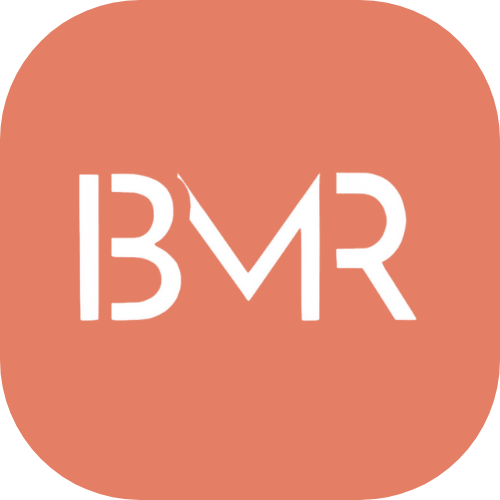The Age Reversing Process A Comprehensive Guide
Aging is a natural part of life, but what if we could slow it down, or even reverse some of its effects? Advances in science and a deeper understanding of how our bodies work have opened new possibilities for maintaining youth and vitality. Here’s a comprehensive guide on the age reversing process and how you can implement it into your daily life.
Understanding the Aging Process
Before diving into age reversal, it’s essential to understand what aging entails. Aging involves changes at the cellular level, including DNA damage, cellular senescence, and changes in gene expression, particularly through epigenetic modifications. Epigenetic age, which reflects these changes, can differ from chronological age, and research suggests it might be modifiable.
Key Strategies for Age Reversal
1. Nutrition and Diet
A nutrient-rich diet is fundamental to health and longevity. Here are some dietary strategies to consider:
- Antioxidant-Rich Foods: Consuming plenty of fruits and vegetables like berries, spinach, and kale helps combat oxidative stress, a key driver of aging.
- Healthy Fats: Omega-3 fatty acids found in fatty fish, flaxseeds, and walnuts reduce inflammation and support brain health.
- Caloric Restriction and Fasting: Reducing caloric intake without malnutrition, or practicing intermittent fasting, has been shown to extend lifespan in various organisms.
- Balanced Diet: Emphasize whole grains, lean proteins, and healthy fats while avoiding processed foods and sugars.
2. Physical Activity
Exercise is one of the most effective ways to maintain youthfulness. It promotes healthy aging by improving cardiovascular health, muscle strength, and mental well-being.
- Aerobic Exercise: Activities like walking, running, swimming, or cycling for at least 150 minutes per week improve cardiovascular health and endurance.
- Strength Training: Engage in resistance exercises at least twice a week to maintain muscle mass and bone density.
- Flexibility and Balance: Incorporate yoga, Pilates, or stretching exercises to improve flexibility and balance, reducing the risk of falls and injuries.
3. Adequate Sleep
Quality sleep is crucial for cellular repair and overall health.
- Sleep Duration: Aim for 7-9 hours of sleep per night.
- Sleep Hygiene: Maintain a regular sleep schedule, create a restful environment, and avoid stimulants like caffeine before bedtime.
4. Stress Management
Chronic stress accelerates aging and increases the risk of various diseases. Managing stress effectively is vital.
- Mindfulness and Meditation: Practices like meditation, deep breathing exercises, and mindfulness can significantly reduce stress levels.
- Relaxing Activities: Engage in activities that you find relaxing, such as walking in nature, gardening, or gentle yoga.
5. Mental Stimulation
Keeping your brain active helps maintain cognitive function and reduces the risk of neurodegenerative diseases.
- Lifelong Learning: Continue learning new skills, reading, or playing brain games.
- Social Connections: Maintain strong social relationships and engage in community activities to promote mental well-being.
6. Avoid Harmful Habits
Certain lifestyle choices can accelerate aging. Avoiding these can significantly improve your health.
- No Smoking: Avoid smoking and exposure to secondhand smoke.
- Limit Alcohol: Consume alcohol in moderation or not at all.
7. Regular Health Checkups
Regular checkups and screenings help detect and manage health issues early, contributing to longevity.
- Preventive Care: Regular visits to healthcare providers for preventive care and screenings.
- Personalized Medicine: Consider genetic testing to tailor health interventions to your specific genetic profile.
8. Supplements
Certain supplements can support cellular health and potentially slow down aging.
- Vitamins and Minerals: Ensure adequate intake of essential nutrients such as vitamins D, C, E, and B-complex, magnesium, and zinc.
- Probiotics: Maintain gut health with probiotics from fermented foods or supplements.
- Anti-Aging Supplements: Consider supplements like resveratrol, nicotinamide riboside, and Coenzyme Q10 that are thought to support cellular health.
9. Hormone Optimization
Hormones play a significant role in aging. Balancing hormones can improve overall health.
- Hormone Replacement Therapy (HRT): Consult with a healthcare provider about HRT to balance estrogen, testosterone, and thyroid hormones if necessary.
10. Environmental Factors
Your environment significantly impacts your health and aging process.
- Reduce Toxins: Minimize exposure to environmental toxins such as pollution, pesticides, and heavy metals.
- Clean Living Space: Maintain a clean and healthy living environment with good air quality.
11. Hydration
Staying hydrated is essential for maintaining skin elasticity and overall health.
- Water Intake: Drink plenty of water throughout the day to keep your body hydrated and support cellular functions.
12. Skin Care
Taking care of your skin can reduce the visible signs of aging.
- Sun Protection: Protect your skin from sun damage by using sunscreen and wearing protective clothing.
- Skincare Routine: Use products that promote skin health, such as moisturizers and serums with antioxidants and peptides.
Conclusion
The age reversing process involves a holistic approach encompassing diet, exercise, sleep, stress management, mental stimulation, and avoiding harmful habits. By adopting these strategies, you can potentially slow down the aging process, improve your epigenetic age, and enjoy a healthier, more vibrant life. Always consult with healthcare professionals before making significant changes to your health regimen.
Embrace these changes and take proactive steps towards a youthful and healthy future!


